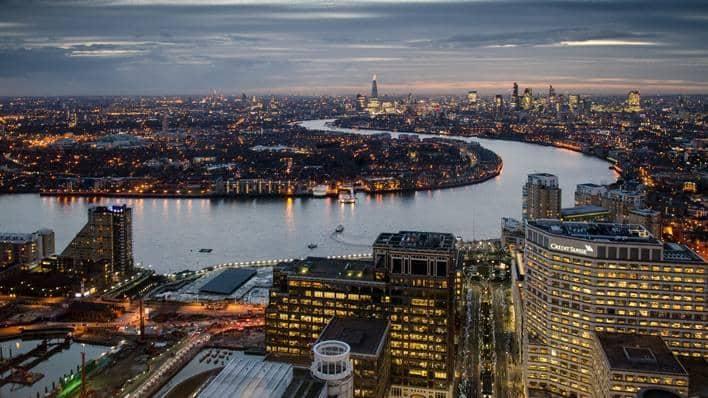
Why London is still the home of fintech
As Barclays launches what promises to be the largest fintech accelerator in Europe, Magdalena Krön, Head of Rise London and Barclays VP of Open Innovation, explains why the city is in no danger of losing its fintech crown.
This week, we open the doors to the new HQ of Rise London – our purpose-built fintech hub in London’s Shoreditch district. Some 500 years ago, when this neighbourhood was developing as a suburb of the City of London, it was known as a place of entertainment: of inns, alehouses and theatres. It was also home to tradesmen serving the needs of the City – horsemen and tailors who placed themselves close to their pool of clients in an area where they could club together and innovate to deliver on those clients’ needs.
It might be stretching it to say that the ironmongers and saddlers of Elizabethan times have a direct line to the blockchain and wearables entrepreneurs of today, but there is a comparison to be made: they all know the benefits of community and they all know the importance of location.

Magdalena Kron, Head of Rise London: Knowledge and expertise exists in London in a way you can’t instantly replicate elsewhere in Europe
Magic roundabout
London is still the home of the financial industry. Although technology moves fast and can connect globally and instantly, for technology companies – particularly fintech companies - there is still a huge premium on where you physically are. When you consider whether London is going to retain its position at the cutting edge of fintech you have to realise that most of the big financial institutions are headquartered in London, and the practicality of them moving those headquarters any time soon would be incredibly complicated, not only for the company structure, but for the amount of language barriers they’d encounter. Paris and Frankfurt lack the English-speaking work culture that would allow them to absorb the international start-ups that are being developed in London.
Also, from a start-up perspective, London is still the place for investment. If you’re a new company and you’re raising capital, London is where you have access to the investor network and the multitude of funds. Silicon Roundabout – as you can probably tell by the name – is not as broad as Silicon Valley, but we’re still far ahead of the rest of Europe both for the amount of capital available and for the appetite of investors to take risks.
Knowledge and expertise exists in London in a way you can’t instantly replicate elsewhere in Europe. This is not just looking narrowly at the financial industry, but also considering access to other sectors that will have an impact on where fintech is going. Fintech is more than financial services: we need to think creatively around the design of services and how products are being built and what customers expect – and because of that we need a lot of support from other industries. And the expertise for that is in London.
Even after the Brexit vote, we had over 600 applicants for the Barclays Accelerator powered by TechStars which is pretty hard evidence that the London scene is still healthy. If you look at the names of the people working for our successful companies, you’ll see that they’ve come to Shoreditch from all around the world.
Positive outcomes
More specifically in Shoreditch, you feel like you’re in the heart of where tech innovators come and build their products and their companies. It’s where you can make valuable connections, because everyone is round the corner. Setting up a meeting is simple, people will pop over and meet face-to-face.
Whitechapel, where we were previously based, was a bit more challenging: even though it’s only a couple of miles away, psychologically it was in a different place. Now we feel like we’re where it’s really happening.
There are a few challenges that we do have. We may see some start-ups set up headquarters in London but have their larger team elsewhere, simply because of the risk that post-Brexit they might not have the same access to talent in London. But at the moment, nobody knows and everyone is speculating. There will be a lot of negotiations to come, but I can see positive outcomes: the government, I think, is still very supportive, and I have strong faith that they will continue to protect the fintech industry that is being built. With our global reach, we can also see that we’re establishing ourselves in the heart of the financial community but are looking globally.
As we start operating from our new home, we want to make a mark that we believe the UK is still the place for fintech. We want people to refer to Rise London as “the home of fintech” – as a building and as a community. Whatever happens with Brexit, we can come out stronger, harnessing disruptive innovation within fintech and seeing how we as a bank can work with these great young companies with the most benefit for everyone.